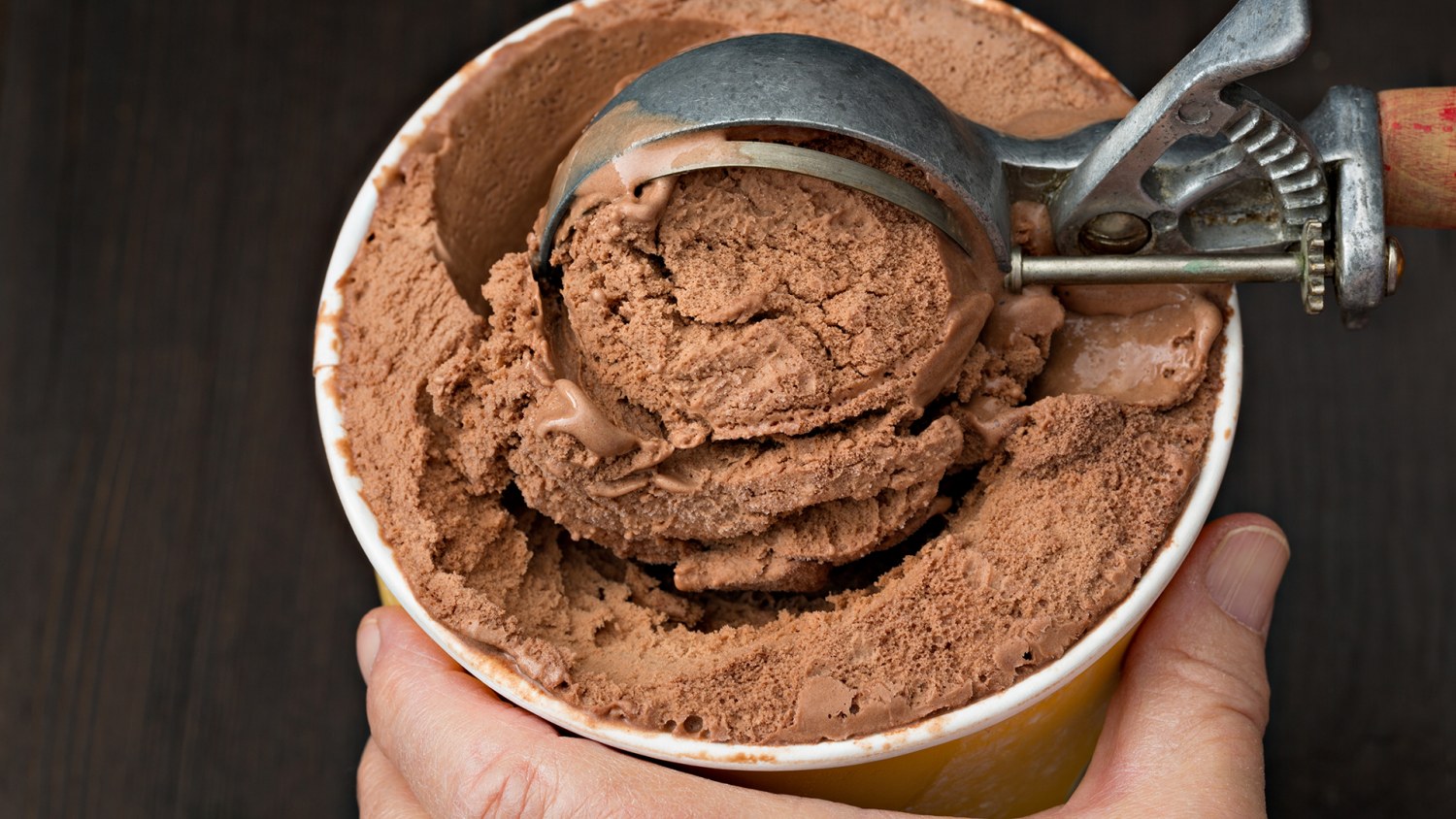Introduction

Ice cream is a beloved dessert enjoyed by many, but for some people, it can lead to uncomfortable digestive issues such as diarrhea. Understanding the effects of ice cream on digestion is important for those who experience these symptoms or have sensitive digestive systems. This article will explore the relationship between ice cream and diarrhea, discussing the composition of ice cream, potential factors that can contribute to diarrhea, and ways to manage digestive issues related to ice cream consumption. By gaining insight into these factors, individuals can make informed choices about their ice cream consumption and better manage their digestive health.
Brief Overview Of The Topic
This article delves into the relationship between ice cream consumption and diarrhea, exploring the effects of ice cream on digestion. It discusses the composition of ice cream, potential factors that can contribute to diarrhea, and ways to manage digestive issues related to ice cream consumption. By understanding these factors, individuals can make informed choices about their ice cream consumption and better manage their digestive health. The article aims to provide valuable insights and tips for those who experience discomfort after eating ice cream.
Importance Of Understanding The Effects Of Ice Cream On Digestion
Understanding the effects of ice cream on digestion is important for individuals who experience discomfort after consuming it. By being aware of how ice cream can impact the digestive system, people can make informed choices about their diet and prevent potential digestive issues such as diarrhea. This knowledge also allows individuals to explore alternative options that are easier to digest and minimize any negative effects on their overall digestive health. Taking the time to understand these effects empowers individuals to take control of their digestive well-being.
How The Digestive System Works

The digestive system is responsible for breaking down food and absorbing nutrients to support the body’s functions. When you eat, the process starts in the mouth, where saliva begins to break down food. From there, the food travels through the esophagus into the stomach, where it is further broken down by stomach acid and enzymes. It then moves into the small intestine, where nutrients are absorbed into the bloodstream. The remaining waste proceeds to the large intestine and eventually exits the body through the rectum. This intricate process ensures that the body receives the necessary nutrients for optimal functioning.
Function Of The Digestive System
The digestive system plays a crucial role in breaking down food and extracting essential nutrients for the body’s functioning. Its main function is to digest ingested food into smaller molecules that can be absorbed by the body. This process involves the secretion of enzymes, acids, and bile to break down proteins, carbohydrates, and fats. Additionally, the digestive system helps eliminate waste materials that are not needed by the body. Overall, it ensures the proper digestion, absorption, and utilization of nutrients for optimal health and well-being.
Process Of Digestion
The process of digestion involves several steps that work together to break down food and extract nutrients. It begins in the mouth, where food is chewed and mixed with saliva. The food then travels down the esophagus and enters the stomach, where it is further broken down by stomach acids and enzymes. From the stomach, the partially digested food moves into the small intestine, where it is broken down even further and nutrients are absorbed into the bloodstream. Finally, the remaining waste materials pass into the large intestine, where water is absorbed and the waste is turned into feces for elimination.
Common Causes Of Diarrhea

Diarrhea can be caused by a variety of factors. Some common causes include:
- Viral infections: Viruses such as norovirus and rotavirus can cause diarrhea.
- Bacterial infections: Bacteria like Salmonella, E. coli, and Campylobacter can lead to diarrhea.
- Food poisoning: Consuming contaminated food or water can result in diarrhea.
- Food intolerances: Certain individuals may experience diarrhea after consuming foods they are intolerant to, such as lactose or gluten.
- Medications: Certain medications, such as antibiotics, can disrupt the balance of bacteria in the gut, leading to diarrhea.
- Stress and anxiety: Emotional stress can affect the functioning of the digestive system and trigger diarrhea.
It is important to identify the underlying cause of diarrhea in order to appropriately address and treat the condition.
Introduction To The Causes Of Diarrhea
Diarrhea can be caused by a variety of factors. Some common causes include viral infections, such as norovirus and rotavirus, as well as bacterial infections like Salmonella, E. coli, and Campylobacter. Food poisoning from contaminated food or water can also lead to diarrhea. Additionally, certain individuals may experience diarrhea after consuming foods they are intolerant to, such as lactose or gluten. The use of certain medications, such as antibiotics, and emotional stress and anxiety can also disrupt the digestive system and trigger diarrhea. It is important to identify the underlying cause of diarrhea in order to appropriately address and treat the condition. [13]
Factors That Can Contribute To Diarrhea
Diarrhea can be caused by various factors including viral or bacterial infections, food poisoning, intolerance to certain foods, medication use, and emotional stress. Viral infections such as norovirus and rotavirus can disrupt the normal function of the digestive system and result in diarrhea. Bacterial infections like Salmonella and E. coli can also lead to diarrhea. In addition, individuals who are intolerant to certain foods such as lactose or gluten may experience diarrhea after consuming these substances. Medications, particularly antibiotics, can disrupt the balance of bacteria in the gut and trigger diarrhea. Lastly, emotional stress and anxiety can negatively affect digestion and contribute to diarrhea. It is important to identify and address the underlying cause of diarrhea in order to effectively manage the condition. [15]
Understanding Ice Cream And Its Ingredients

Ice cream is a beloved dessert made from a mix of milk, cream, sugar, and flavorings. However, it’s important to note that ice cream may also contain additives and preservatives, which can potentially contribute to adverse reactions in certain individuals. These additives can include stabilizers, emulsifiers, and artificial colorings or flavors. Understanding the composition and ingredients of ice cream is essential for assessing its potential effects on digestion and overall health.
Composition Of Ice Cream
Ice cream is typically made from a combination of milk, cream, sugar, and flavorings. The milk and cream provide the base of the ice cream, giving it its creamy texture. Sugar is added for sweetness, while flavorings such as vanilla, chocolate, or fruits enhance the taste. Additionally, ice cream may contain additives and preservatives like stabilizers, emulsifiers, and artificial colorings or flavors. These ingredients help improve the texture, shelf life, and appearance of the ice cream. However, it’s important to note that these additives can potentially affect digestion in some individuals. [19]
Impact Of Ingredients On Digestion
The ingredients in ice cream can have varying effects on digestion. While milk and cream provide the creamy texture, they can be problematic for those who are lactose intolerant. Lactose intolerance occurs when the body lacks the enzymes necessary to break down lactose, the sugar found in milk. This can lead to digestive symptoms such as bloating, gas, and diarrhea. Additionally, additives and preservatives in ice cream can also contribute to digestive issues in some individuals. It’s important for those with sensitive digestion to be mindful of the ingredients in ice cream and consider alternative options if necessary.
Can Ice Cream Cause Diarrhea?

Yes, ice cream can cause diarrhea in some individuals. This is particularly true for people who are lactose intolerant. Lactose intolerance affects the ability to digest lactose, the sugar found in milk and dairy products like ice cream. Consuming ice cream can lead to symptoms such as bloating, gas, and diarrhea in those who are lactose intolerant. Additionally, certain additives and preservatives in ice cream can also contribute to digestive issues. It’s important for individuals with sensitive digestion to be mindful of their ice cream consumption and consider alternative options if necessary.
Relationship Between Ice Cream And Diarrhea
Ice cream can potentially cause diarrhea, especially for individuals who are lactose intolerant. Lactose intolerance affects the body’s ability to digest lactose, the sugar found in milk and dairy products like ice cream. Consuming ice cream can lead to symptoms such as bloating, gas, and diarrhea in those who are lactose intolerant. Additionally, certain additives and preservatives in ice cream may also contribute to digestive issues. It is important for individuals with sensitive digestion to be mindful of their ice cream consumption and consider alternative options if necessary. [25]
Factors That Can Influence Ice Cream’s Effect On Digestion
There are several factors that can influence how ice cream affects digestion. These factors include:
- Lactose intolerance: Individuals who are lactose intolerant may experience diarrhea and other digestive issues after consuming ice cream due to their inability to digest lactose.
- Sensitivity to dairy proteins: Some individuals may be sensitive to proteins found in ice cream, such as casein or whey, which can cause digestive discomfort.
- Underlying medical conditions: People with gastrointestinal disorders or hormonal influences may be more susceptible to experiencing diarrhea after eating ice cream.
- Quantity and frequency of consumption: Consuming large amounts of ice cream or eating it frequently can increase the likelihood of experiencing digestive issues.
It is important to consider these factors when consuming ice cream, especially for individuals with sensitive digestion. [27]
Managing Digestive Issues Related To Ice Cream Consumption

To manage digestive issues related to ice cream consumption, there are a few tips that can be helpful. Firstly, individuals who are lactose intolerant can opt for lactose-free or dairy-free ice cream alternatives. Additionally, consuming smaller portions of ice cream and gradually increasing the amount over time can help the body adapt to digesting it. It may also be beneficial to eat ice cream with a meal or snack that contains protein or fat to slow down the digestion process. Lastly, keeping a food diary and noting any symptoms can help identify specific triggers and make dietary adjustments accordingly.
Tips For Preventing Diarrhea After Consuming Ice Cream
- Opt for lactose-free or dairy-free ice cream alternatives if you are lactose intolerant.
- Start by consuming smaller portions of ice cream and gradually increase the amount over time to allow your body to adapt to digesting it.
- Eat ice cream with a meal or snack that contains protein or fat to slow down the digestion process.
- Keep a food diary and note any symptoms to identify specific triggers and make dietary adjustments accordingly.
- Consult with a healthcare professional or registered dietitian for personalized advice and guidance.
Alternative Options For Those With Sensitive Digestion
For individuals with sensitive digestion or who experience diarrhea after consuming ice cream, there are alternative options available. One option is to choose lactose-free or dairy-free ice cream alternatives. These products are specifically designed for individuals with lactose intolerance and are easier to digest. Another option is to opt for sorbet or frozen yogurt, which are often lighter and less likely to cause digestive discomfort. Additionally, individuals can experiment with homemade ice cream recipes using alternative milk or dairy substitutes to cater to their specific dietary needs and preferences.
Conclusion

In conclusion, the relationship between ice cream and diarrhea is complex, and the effects can vary from person to person. While ice cream can potentially cause diarrhea, it is not the sole factor responsible for digestive issues. It is important for individuals to listen to their bodies and pay attention to their specific dietary needs and sensitivities. Managing digestive issues related to ice cream consumption involves understanding the ingredients and opting for alternative options when necessary. By making mindful choices, individuals can enjoy ice cream without compromising their digestive health. [36]
Recap Of Main Points Discussed
In this article, the effects of ice cream on digestion and its potential to cause diarrhea were explored. The digestive system and the process of digestion were explained, as well as the common causes of diarrhea. The composition of ice cream and the impact of its ingredients on digestion were also discussed. It was concluded that while ice cream can potentially cause diarrhea, it is not the sole factor responsible for digestive issues. Individual factors and sensitivities must be taken into account when managing digestive issues related to ice cream consumption.
Final Thoughts On The Effects Of Ice Cream On Digestion
In conclusion, while ice cream can potentially cause digestive issues such as diarrhea, it is not the sole factor responsible for these issues. Individual factors, such as lactose intolerance or sensitivities to certain ingredients, can play a role in how ice cream affects digestion. It is important to listen to your body and make adjustments accordingly. If you experience discomfort after consuming ice cream, it may be helpful to explore alternative options or seek advice from a healthcare professional. Ultimately, moderation and awareness are key when enjoying this beloved frozen treat.
Frequently Asked Questions (FAQ) – Can Ice Cream Cause Diarrhea
Q: Can ice cream really cause diarrhea?
A: Yes, in some cases, ice cream can potentially cause diarrhea. It depends on various factors like lactose intolerance, food allergies, or consuming contaminated ice cream.
Q: How does ice cream cause diarrhea?
A: Ice cream can trigger diarrhea in individuals who are lactose intolerant, meaning they have difficulty digesting lactose, a sugar found in dairy products. Consuming ice cream can also cause diarrhea in people with a milk allergy or if the ice cream is contaminated with harmful bacteria.
Q: What is lactose intolerance?
A: Lactose intolerance is the inability to fully digest lactose due to the deficiency of the enzyme lactase, which breaks down lactose into simpler sugars. When lactose is not digested properly, it can cause various digestive symptoms, including diarrhea.
Q: How can I tell if I am lactose intolerant?
A: Common symptoms of lactose intolerance include diarrhea, bloating, abdominal cramps, and gas occurring 30 minutes to two hours after consuming dairy products. Consulting a healthcare professional and undergoing lactose intolerance tests can help confirm the condition.
Q: Can ice cream cause diarrhea in people with milk allergies?
A: Yes, ice cream can cause diarrhea in individuals with milk allergies. Milk allergies involve an immune system response to proteins present in milk, including in ice cream. Symptoms can range from mild to severe and may include diarrhea, stomach cramps, hives, or even anaphylaxis in severe cases.
Q: Can contaminated ice cream cause diarrhea?
A: Yes, if ice cream is contaminated with harmful bacteria such as Salmonella or E. coli, it can lead to food poisoning and subsequently result in diarrhea. Proper storage, handling, and sanitation practices are essential to prevent ice cream contamination.
Q: How can I prevent ice cream-induced diarrhea?
A: If you are lactose intolerant, you can opt for lactose-free or dairy-free ice cream alternatives. Individuals with milk allergies should avoid ice cream altogether or choose non-dairy options. It’s crucial to handle and store ice cream properly to minimize the risk of contamination.
Q: Are there any other factors to consider?
A: Other factors that can contribute to ice cream-induced diarrhea include individual sensitivities to certain ingredients, excessive consumption of ice cream, and consuming ice cream in combination with other foods or beverages that may trigger digestive issues.
Q: Should I consult a healthcare professional if ice cream causes diarrhea?
A: If you frequently experience diarrhea after consuming ice cream or any other dairy products, it’s advisable to consult with a healthcare professional. They can help determine the underlying cause of your symptoms and provide appropriate guidance and treatment options.
Remember, if you have any specific concerns or frequently experience digestive issues, it is always best to consult with a healthcare professional for personalized advice.

Soo Good Snack Bar is an upscale snack shop located at 1309 Hermosa Ave. in Hermosa Beach, CA. This family-owned business is the newest addition to the community of Hermosa, and our goal is to create a fun and inviting place where families can enjoy delicious snack foods that fit the beach lifestyle. Check us out today and help yourself to happiness.
